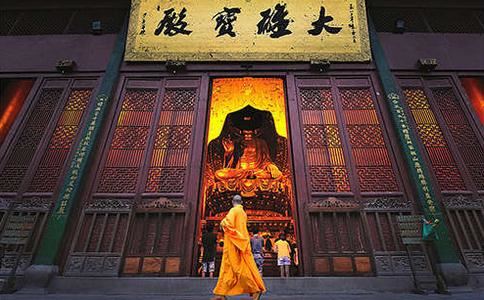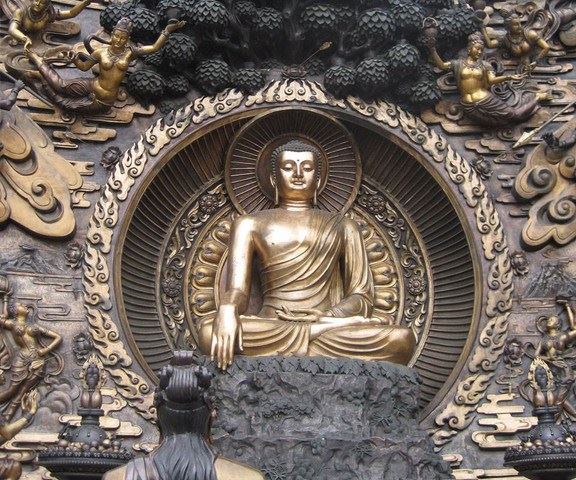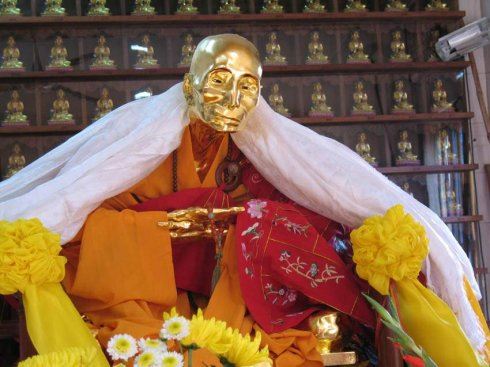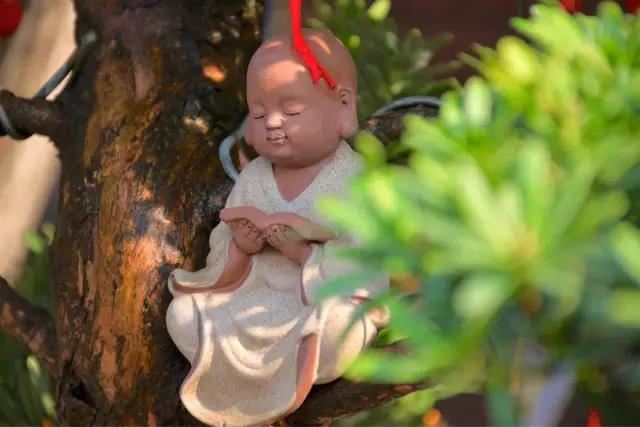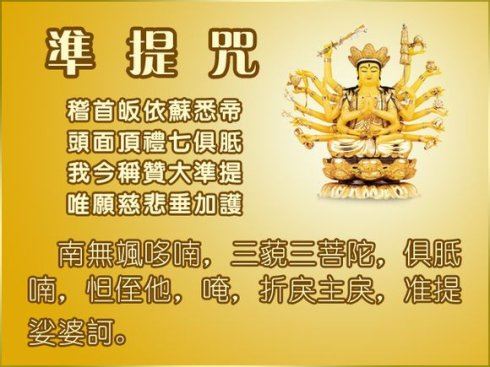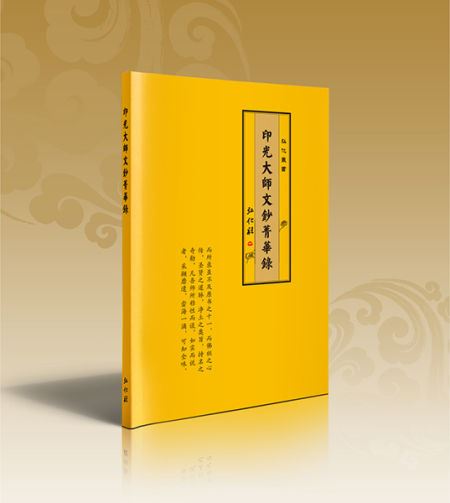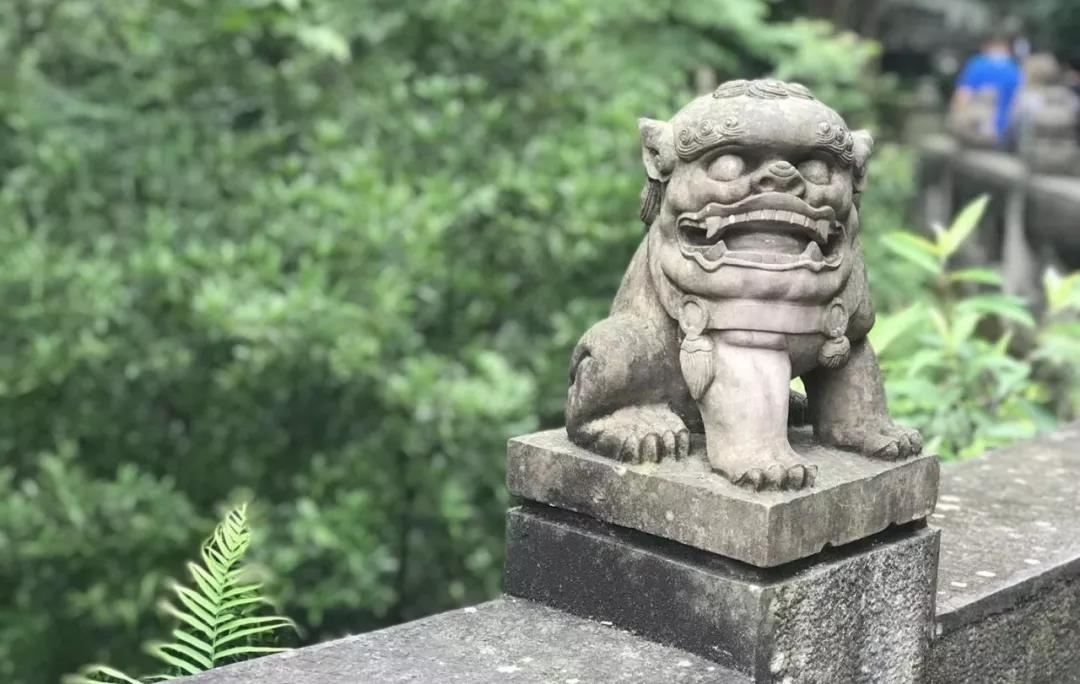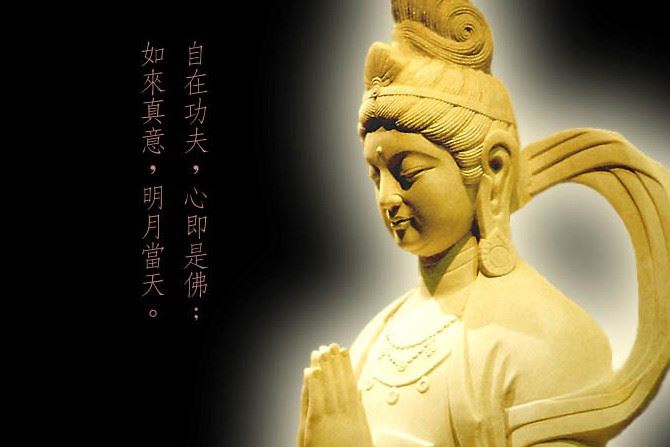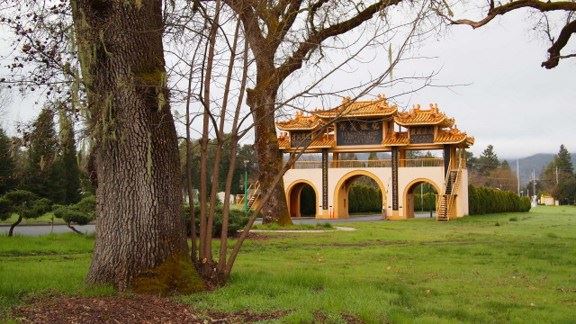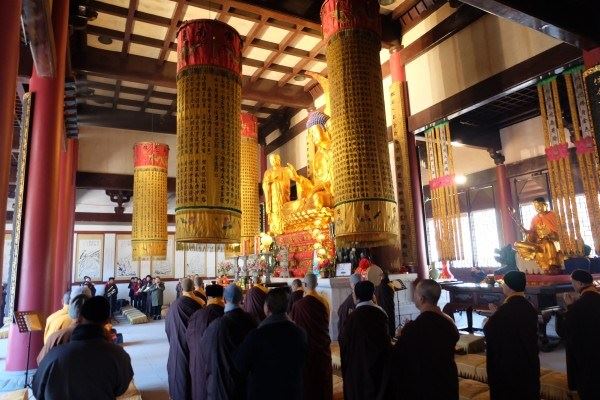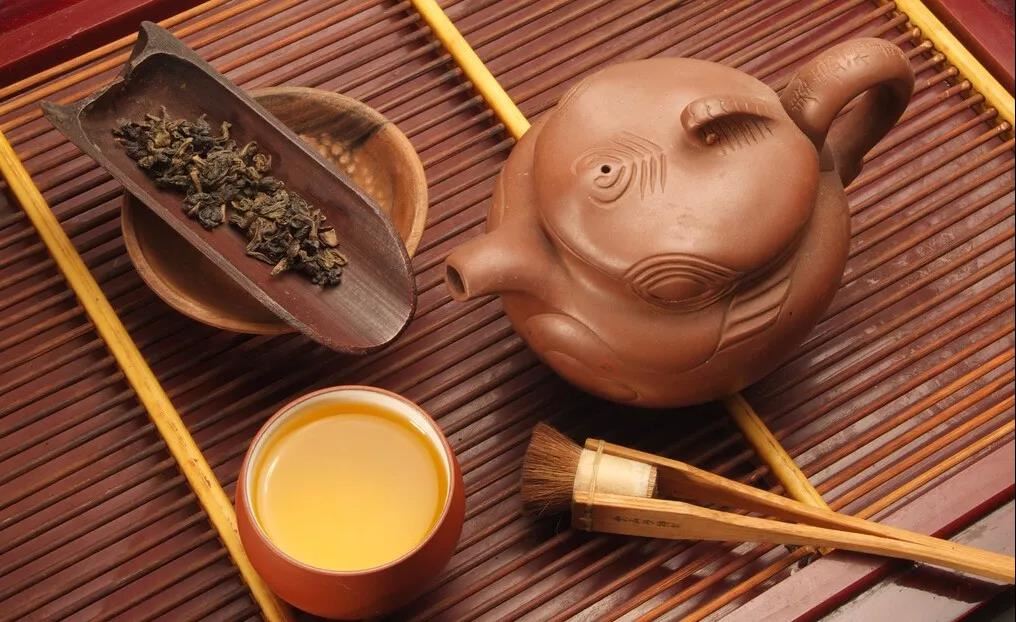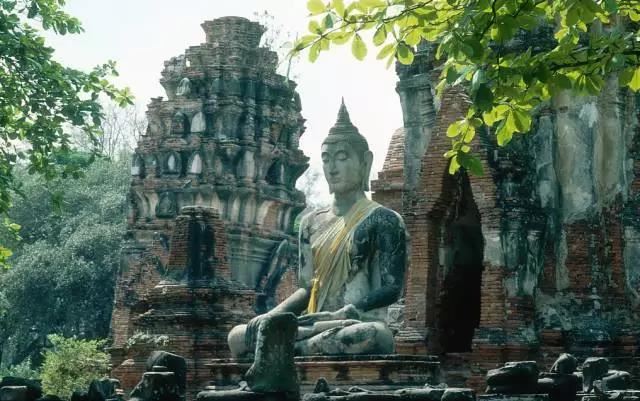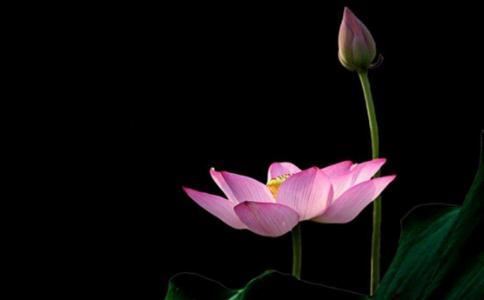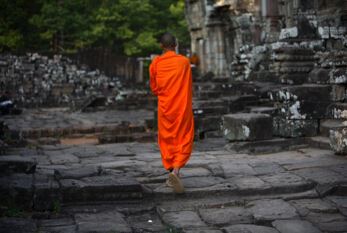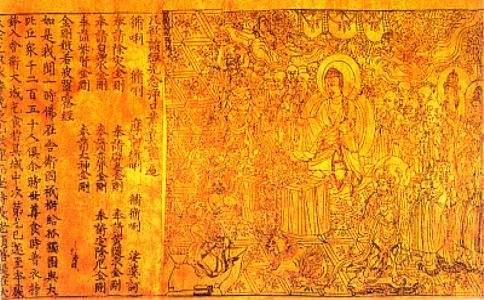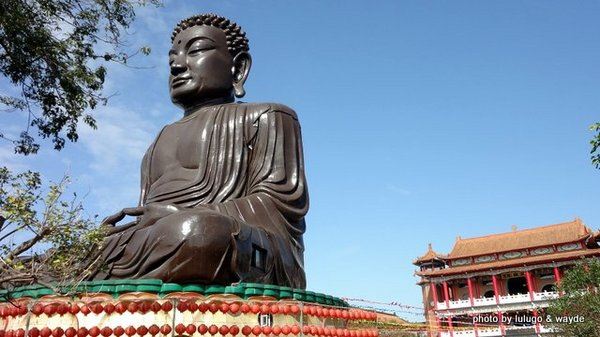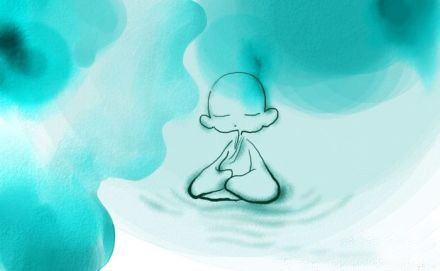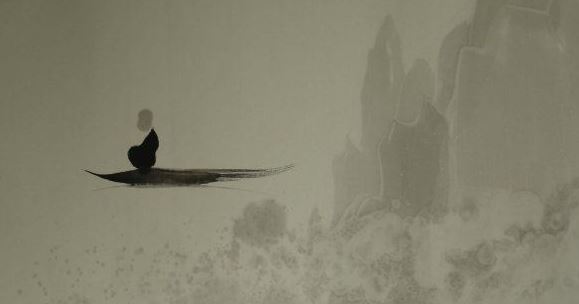On Practice V 【修行 (五) -英文】
2022-10-28 外文文稿
修行要福、慧双修,修到老时,福、慧具足,一切自然成就。
When we set out for practice, we have to practice for gaining both virtues and wisdom so that as we get on in years, we will gradually attain both. Becoming enlightened is only the natural result.
信徒拿东西到寺里布施供养,是为了求褔,不管拿的东西是好是坏,即使只是摘一根草来,我们也要以欢喜心接受。最重要的是不能对东西起分别,因为一分别,就会对好东西起贪念,对坏东西嫌弃起烦恼,甚至造口业而障道修行。应该随缘处理这些东西,运用智慧把不好的东西做适当调理或处置,如此则褔、慧双修。
Worshipers bring offerings to the temple with the desire of gaining virtues. Whatever is offered, even a blade of grass, we should accept it with joy. Most important of all: do not be discriminative of the offerings because when we do, we would desire the good and despise the bad and might become vexed for the dislike or even create negative karma through verbal actions hence blemish our practice. Go along with the karmic situation to handle the offerings as they come, use our wisdom to make the best out of them. Such will then be in keeping with the dual practice toward attaining virtues and wisdom.
要做一位菩萨,不可以存着(自己好就好,别人不管他)的心理。凡事以利益别人为前提,自己吃亏没关系,如果事事只想利益自己,无明烦恼就会一大堆。
Those who wish to tread the bodhisattva-path shall not have such mindset that as long as it is good to me, who cares what it does to others. It is indeed the others whose welfare should always be foremost on our mind--even at our own expenses. If we only look after our own concerns, endless delusive vexations will follow.
出家人慈悲为本,方便为门,一切菩提道果都是从慈悲中生出来的。
For monastic practitioners, kindness and compassion are the base, various expedience are the door to guide sentient beings to practice. All bodhi fruits grow out of kindness and compassion.
以后师父不在,不必担心修行没有人指导,只要照师父的话----念佛修苦行,道心坚固,不执着六尘好坏,一切随缘。能这样做,就如同师父在时一样。
After I am gone, there is no need to worry that no one will guide you in your practice. Just remember what I told you: chant the name of the Buddha, practice diligently and with firm determination, abstain from the pleasures of the six senses, and go along with what you are given. If you are able to do so, it will be as if I were still among you.
听师父开示,觉得很好,但这个(好)是师父的境界,至于我们自己的道行,还是需要依照师父的开示,自己去体会、去实修、去实证。
We listened to our Masters exposition, found it very agreeable, and enjoyed it. However, such agreeableness reflects the stage reached by our Masters. As for our own lever of attainment, it depends on how much we put those teachings into practice. Only through such a process will we be able to comprehend and verify their truthfulness and usefulness.
听开示不在于听得多不多,而是在于听得进或听不进。即使听进去了,也还要会随境应用,才能得到法益。
True listening does not rest in how much we have listened to our Master but in how well we have listened. Even if we have listened well, we would benefit only if we can apply properly what we have heard to the circumstances we come across.
我们修苦行,是在藉各种事境,磨练我们的身心,破除无明烦恼,洗涤俗染习气,锻炼各种能耐,并不是做了一点劳力事就叫做苦行。出家不要怕吃苦,不要怕逆境!只有在苦中才能历练我们、开发我们的智慧。
We who chose the path of ascetic practice ought to regard all circumstances and hardships as good opportunities to discipline our minds and bodies. Such training will help to cut off our delusion and vexations, to cleanse our habitual patterns, and to toughen us against all resistance. Merely performing laborious tasks certainly does not turn us into ascetics. Therefore, all those who have left home for practice ought not to be afraid of hardships. Only through overcoming continuous adversities can we discipline our minds and unfold our wisdom.
(无苦不成道)----修苦行要有真切愿力,而有愿力必能行,自然对一切粗贱的工作,不会去分别计较,都会很尽心的去做,甚至不感觉痛苦,而这一切也都是在磨我们的傲气,消我们的业障。所以修行不要怕苦,有苦才有行好修,无苦就没有道行可言。
No hardship, no attainment. Walking the path of asceticism requires firm determination. With such will-power, we naturally will not discriminate against any tasks assigned to us. Instead, we will carry them out devotedly without even considering them as menial, for such tasks will wear down our pride and help to reduce our karmic obstructions. Therefore, a practitioner ought not to be afraid of, nor try to escape from, hardships, for without them there is nothing to practice on, hence no attainment to speak of.
人生有八苦----生、老、病、死、爱别离、怨憎会、求不得、五蕴炽盛苦,及一切贪、瞋、痴的苦毒逼恼。一般人每天就是被这些无明烦恼业转来转去,痛苦不已,如果没有以佛法来对治,从修行上下工夫,是无法得到解脱的。
There are eight kinds of sufferings from which human beings constantly suffer: birth, aging, disease, death, separation from loved ones, company of hated ones, failure to obtain what we desire, and all the ills of the five skandhas (form, sensation, perception, volition, and consciousness). In addition, we are also vexed by our greed, anger, and ignorance. Unenlightened as we are, we totter from day to day under the full sway of such delusive and afflictive karma, suffering immensely. Without diligent practice under the guidance of Buddha dharma, we can never be liberated.
我们人道是四生中最灵的,若不懂佛法因果,为了一己的贪欲,想吃肉就任意宰杀,这样会造下很严重的恶业。你看!当我们在杀那些动物时,他们也知道死苦,哀哀而鸣,而这哀鸣就是怨恨,杀了牠,我们就与牠结下了冤业,将来冤冤相报,生生相杀,永脱不出生死轮回。所以学佛的人要戒杀、长养慈悲心,即是这道理。
Among the four forms of birth, the spiritual level of human beings is the most elevated. However, if we do not understand the Dharma and the principle of causality, we might kill animals just to satisfy our desire of eating meat. This will create very severe karmic obstructions. We all see that as the animals are butchered, they, too, know the pangs of death and will scream out miserably, and those are screams of resentment. If we kill them anyway, we shall come under the sway of this negative karmic affinity. This will start a vicious cycle of killing and revenge, barring us forever from escaping samsara. For this reason, a Buddhist should faithfully keep the precept against killing, cultivating a compassionate mind instead.
人身难得!我们得到了这个人身,是要用来修行的,要藉这个人身来了生死、成佛做祖;不要再依这个人身又造贪、瞋、痴的恶业,贪好吃、贪美服、贪享受、贪子孙儿女,在六根尘中做梦,不知回头修行,等到失去这个人身的机会时,轮回就有我们的份了。要知道,畜生道中,牛、马、猪、狗等都是我们人去做的,地狱、饿鬼道也是我们人去投的,一切都是我们这个心所造成的,所以说,由这个人身可修行成佛做祖,亦可造业堕六道轮回。既已出家,就该依着佛法,找到一条修行的途径,看能不能由此超出生死轮回,脱离娑婆之苦。
Among the six paths of rebirth, our human existence is by no means easy to attain! The idea, though, is that we should grasp this unique opportunity for practice so as to break out the cycle of birth and death and ultimately reach buddhahood. Do not accumulate additional negative karma through our greed, anger, ignorance, and endless pursuits of tasty food, lavish clothing, worldly pleasure, children and grandchildren, etc. If, instead of diligent practice, we remain attached to the six sensual objects and lose this precious opportunity of human existence, we will be forever confined to samsara. Be aware that human beings can easily be reborn as animals like cows, horses, pigs, dogs, etc., hell-beings, or hungry ghosts. Where we end up depends on where we put our minds. We can either utilize this human existence to practice in the hope of attaining buddhahood, or to create more negative karma hence confine ourselves in the six paths of rebirth. Since we all have chosen to leave home for practice, shouldnt we be practicing diligently to find the way to escape the entanglement and torment of samsara forever?
------Translated from Analects of Master Kuang-chin(编译自《广钦老和尚开示录》)
2024-02-04 21:54微信分享
扫描二维码分享到微信或朋友圈
